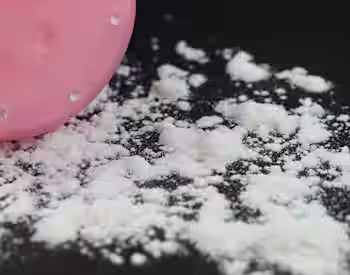Rising mesothelioma cases linked to asbestos in talc-containing beauty products
Asbestos has been found in many products, including some types of talc, a mineral found close to asbestos during mining. Cosmetic brands use talcum powder in products such as eye shadow, foundation, and blusher because it absorbs moisture. While talc itself is safe, the risk of contamination with asbestos is high.

Asbestos has long been linked to the cancer mesothelioma that develops in the tissue covering the lungs and abdomen.
The latest figures show that nearly 600 women died from mesothelioma in 2020 in the UK, a seven per cent increase on the year before and higher than in any of the previous eight years.
According to Cancer Research UK, the rate of new cases in women has doubled since the early 1990s, while increasing by about half in men. Women are generally more likely than men to have been exposed to asbestos in talcum powder and beauty products, but the number of women also having been exposed at work, as medics and teachers for example, is also on the rise. Women have also been exposed to asbestos as children by the dust brought home from work by their fathers.
The revelation of asbestos presence in talc-containing products has come to light only in recent years, posing a significant challenge for manufacturers in terms of product liability.
The US courts have experienced a surge in claims from people affected by exposure to asbestos via products containing talc, including cases against well-known brands such as Johnson & Johnson, Estée Lauder and Clinique.
Johnson & Johnson alone is facing more than 38,000 lawsuits alleging that the company's talc products, including its Baby Powder, were contaminated by asbestos and caused mesothelioma.
Another well-known brand, Avon was ordered to pay $50m to a 76-year-old mesothelioma victim who claimed the company's cosmetics contained asbestos. The company is currently appealing the claim.
Our Industrial Disease team is actively handling talc-related claims and collaborating with leading US trial lawyer Brendan Tully on cases involving US product liability lawsuits on behalf of UK victims of mesothelioma affected the US.

